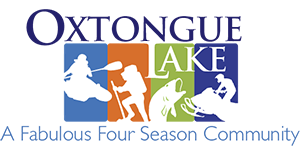How to Care for Oxtongue Lake
Impacts we have on our lake:
- Nutrients – too much input can result in increased algae blooms, coliform and ecoli
- Chemicals – purposeful or accidental input of gasses, paints, oils, and cleaning supplies
- Wake – ignoring speed limits and shoreline distancing destroys habitat and causes erosion
- Shoreline Changes – improper construction & lawn maintenance can have a negative impact on lake health
- Spread of invasive species – through poor boat cleaning and fishing practices
Why should we care?
Keeping a healthy lake impacts all of us!!
It helps keep plants and animals in our lake, ensures the strength of local tourism now and in the future, and it allows us to keep enjoying the lake visually, but also for swimming, wildlife viewing and drinking.
How we can help:
- Maintain functioning septic with regular pumping
- Keep fertilizers and compost away from the shoreline
- Use phosphate-free soaps, detergents and cleaners in your home
- Naturalize shorelines with native plant species, never clear cut, and don’t cut your lawn within 3m of shore
- Take care filling boat motors – don’t overfill, and soak up and spills before running the bilge pump
- Store chemicals – ie. gasoline, paint – far from the shoreline in a sealed environment.
- Limit pesticide use, and don’t use them or fertilizers near the shoreline
- Wait to apply insect repellant until after swimming
- Don’t pour medicines, paint products, oils, varnishes, or other bio-degradable cleaners down the drain
- Pump out your septic tank regularly (every two to three years)
- Maintain a distance from the shoreline and watch to ensure your wake isn’t reaching shore
- Obey speed limits – 10km/hr within 30m of shore
- Avoid travelling in sensitive areas such as marshes
- Don’t transport firewood
- Don’t transport bait from one area to another
- Ensure boats are clean and remove any vegetation or animals and empty bilge BEFORE launching
Fore more information please read How to Care for Our Lake by Ben Tesky, assisted by Stephen Fuller.
Also Read FOCA’s Guide to Healthy Shorelines
